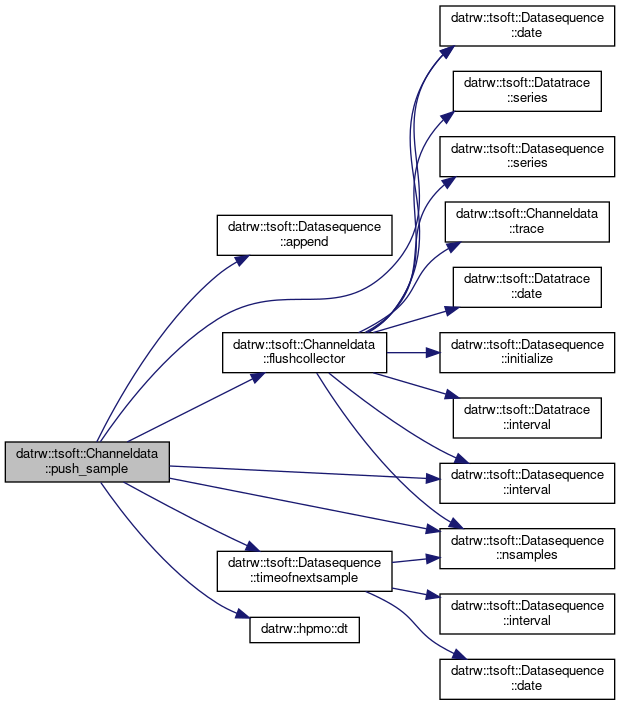◆ push_sample()
| void datrw::tsoft::Channeldata::push_sample | ( | const libtime::TAbsoluteTime & | time, |
| const double & | value, | ||
| const double & | undetval, | ||
| const libtime::TRelativeTime & | dt, | ||
| const ReaderConfig & | rc, | ||
| const bool & | debug = false |
||
| ) |
push a sample
Definition at line 228 of file tsoftdata.cc.
References datrw::tsoft::Datasequence::append(), datrw::tsoft::ReaderConfig::bridgeflagvalue, datrw::tsoft::ReaderConfig::bridgesamples, datrw::tsoft::ReaderConfig::bridgetime, datrw::tsoft::Datasequence::date(), DATRW_report_assert, datrw::hpmo::dt(), datrw::tsoft::ReaderConfig::flagbridged, datrw::tsoft::ReaderConfig::flagvalue, flushcollector(), datrw::tsoft::Datasequence::interval(), datrw::tsoft::ReaderConfig::keepundetval, Mcollector, datrw::tsoft::Datasequence::nsamples(), datrw::tsoft::ReaderConfig::setundetval, and datrw::tsoft::Datasequence::timeofnextsample().
Referenced by datrw::tsoft::Datacontainer::push_data().
libtime::TAbsoluteTime timeofnextsample(const bool &debug=false) const
return time of next sample after last samples
Definition: tsoftdata.cc:164
libtime::TRelativeTime dt()
return sampling interval of HPMO data acquisition (i.e. 5 sec)
Definition: readhpmo.cc:83
void flushcollector()
function to flush collector to vector of sequences
Definition: tsoftdata.cc:213
Here is the call graph for this function:

Here is the caller graph for this function:

